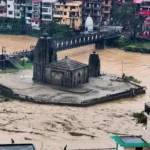
The Delhi government, under the guidance of Health Minister Saurabh Bharadwaj, has initiated swift measures to combat a potential rise in respiratory illnesses following the detection of three human metapneumovirus (HMPV) cases in India. This directive underscores the government’s proactive approach to safeguarding public health amidst rising global circulation of the virus.
Government Directives and Preparedness Measures
Minister Bharadwaj emphasized the critical need for the health and family welfare department to track HMPV trends meticulously, maintaining close communication with the Union Health Ministry. In his directive, he stated:
“Hospitals in Delhi must be adequately equipped to address any potential surge in respiratory illnesses as per union health ministry guidelines.”
To ensure readiness, Bharadwaj instructed the health secretary to conduct daily inspections of major Delhi hospitals. These inspections aim to assess and report on:
- Availability of essential medicines.
- ICU bed capacity.
- Functionality of radiological equipment.
- Staffing at outpatient department (OPD) counters.
Hospitals are advised to submit daily updates to the minister, who has made himself readily available for immediate response to critical developments.
HMPV Cases Detected in India
- Two cases in Karnataka: Detected through the Indian Council of Medical Research’s (ICMR) routine respiratory pathogen screenings, affecting a three-month-old and an eight-month-old with histories of bronchopneumonia.
- One case in Gujarat: A child tested positive for HMPV after hospitalization on December 24; the child’s condition remains stable.
Understanding Human Metapneumovirus (HMPV)
HMPV, identified in 2001, is a common respiratory virus causing cold-like symptoms. While most adults exhibit immunity due to prior exposure, it can pose a serious threat to:
- Infants experiencing their first exposure.
- Individuals with weakened immune systems.
Key Characteristics:
- Globally, HMPV contributes to 4-16% of acute respiratory infections.
- Cases generally peak during November-May.
- Symptoms include cough, fever, nasal congestion, and wheezing, with severe cases leading to bronchopneumonia or breathing difficulties.
Delhi Government’s Vigilance and Public Health Awareness
Delhi’s proactive response demonstrates heightened vigilance in preventing a public health crisis. By equipping hospitals with necessary resources and promoting real-time inspections, the government is ensuring optimal preparedness to handle a potential surge in respiratory infections.
Public Health Recommendations:
To minimize the risk of HMPV spread:
- Practice hand hygiene by washing hands frequently.
- Avoid close contact with individuals showing cold-like symptoms.
- Keep vaccination and immunity-boosting practices up to date, particularly for infants and vulnerable populations.
- Seek medical advice for persistent respiratory symptoms, especially among infants or immunocompromised individuals.
The Delhi government’s strategic planning reflects its commitment to public health security, reinforcing the message that collective vigilance is key to preventing widespread outbreaks of respiratory illnesses like HMPV.




































Leave a Reply